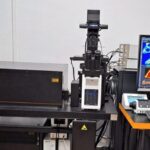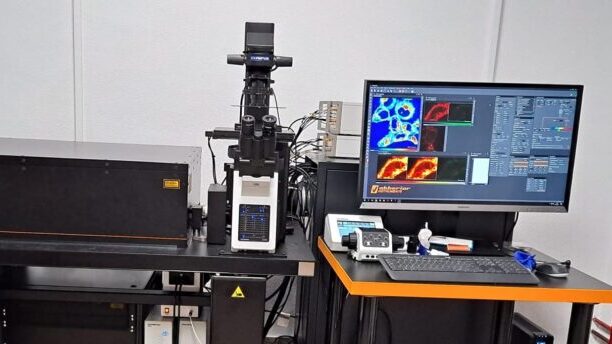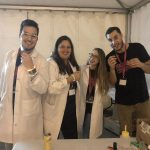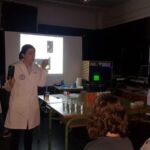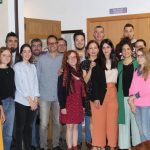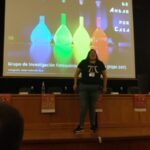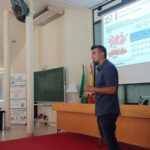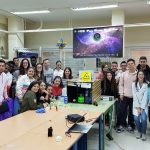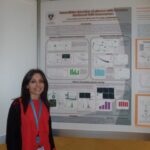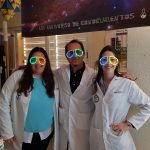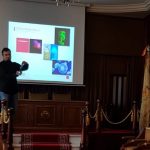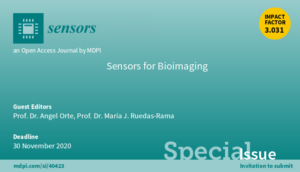Our current research lines are:
The Photochemistry and Photobiology group FQM-247 is settled at the Faculty of Pharmacy of the University of Granada (Spain) and it is composed of professors and researchers of the Physical Chemistry Department and numerous PhD and Master Students.
The research group explores several biological systems and processes, focusing on luminescence emission techniques, developing nanotechnological tools and proposing new diagnostic methodologies for current health and disease challenges. In particular, we develop innovative sensing strategies based on organic fluorophores, lanthanide antennas, quantum dots, fluorescent proteins and nanoparticles, which allow for sensitive, rapid and non-invasive detection of a variety of intracellular analytes of biological relevance in situ, e.g.: biothiols, pH levels, phosphate ions, nucleic acids and proteins, and for the study of enzymatic activities (e.g: proteases and protein kinases). These strategies take advantage of our experience in multicolour single-molecule fluorescence techniques, single-molecule biophysics, and excited-state dynamics. One of the key features of our research is its interdisciplinary dimension, at the interface between chemistry, biochemistry, biology and physics.
For instance, we employ advanced microscopy and state-of-the-art nanotechnological approaches for understanding how tumoral cells modify their way to use energy utilising smart adaptation mechanisms. In particular, focusing on tumoral breast cancer cell lines, we can identify different metabolic profiles, according to the clinical classifications of these types of tumours. Besides, this knowledge permits us to design potential new drugs aimed to act directly on the tumoral metabolism, improving the current treatments. This transversal research line includes active collaboration with the Departments of Organic Chemistry and Biochemistry (UGR), the Genyo Center for oncological research, and the University of Trento (UNINT).
Current approaches for cancer diagnostics usually are effective in late stages of the disease, lacking early diagnostic tools, which would greatly benefit the prognosis of the patients if available. In this sense, we also develop new diagnostics approaches for the early detection of certain biomarkers of some diseases including cancer or hepatic dysfunction. This would provide means of gaining insights into pathogenesis, while also providing tools for early detection of target deregulation. In particular, we focus on micro-RNAs, which are small fragments of circulating ribonucleic acid found in blood or other biological fluids, as potential biomarkers. We work in the design of novel, simple, portable and affordable instrumentation in conjunction with companies DestiNA Genomica (Spain) and Optoi Microelectronics (Italy) for the detection and analysis of these important biomarkers in the framework of a European RISE H2020 project.
Finally, we employ molecular analysis techniques for studying the underlying mechanism of formation of neurotoxic aggregates, found in Alzheimer disease and other related systems. A better comprehension of the foundations by which these protein aggregates, precursors of amyloid fibers, are formed will contribute with valuable information to employ against neurodegenerative diseases.

